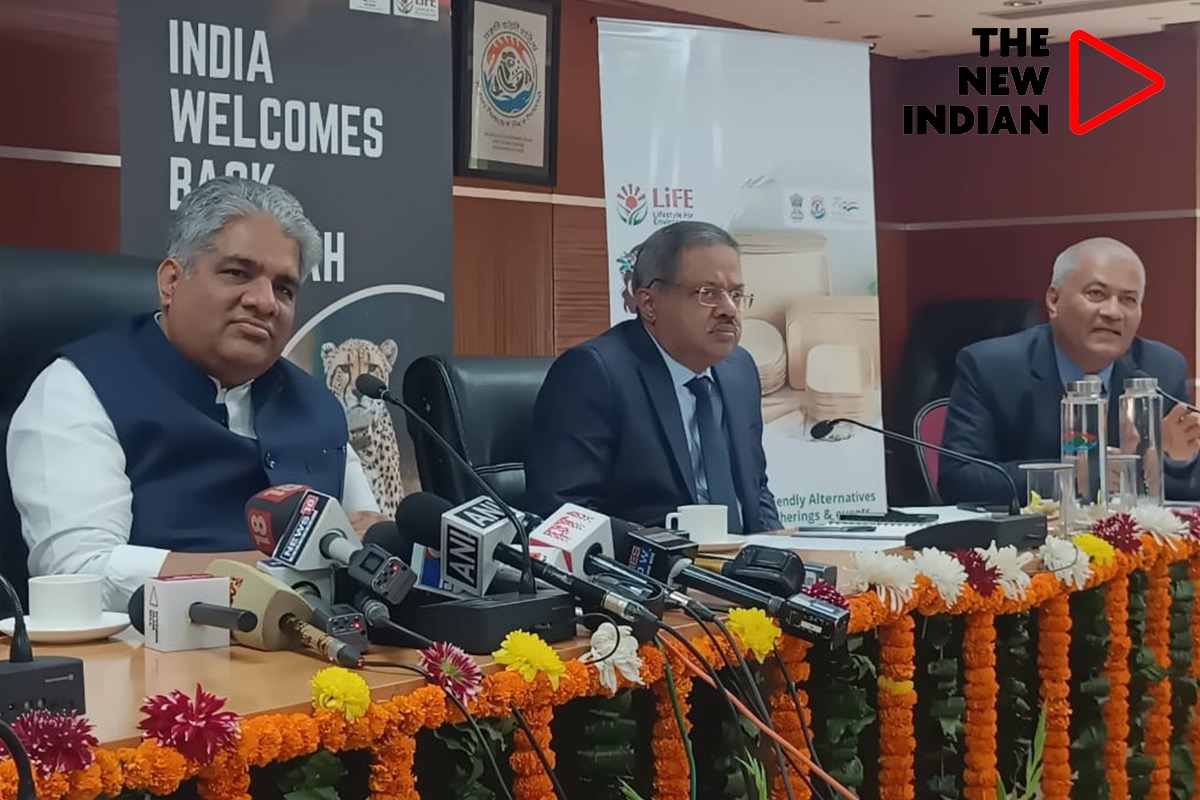India is all set to welcome 12 cheetahs from South Africa on 18th February in the second phase after a successful translocation of eight Cheetahs from Namibia in 2022.
The cheetahs will be brought to Madhya Pradesh’s Kuno National Park(KNP) by India Air For (IAF) on gratis, confirmed Union Environment Minister Bhupendra Yadav.
KNP is 748 sq km but the entire landscape is around 6400 sq km which is viable for the Cheetah population.
As part of international protocol, these seven male and five female cheetahs will be first kept in 50/ 30 meters bomas (enclosure) for their mandatory quarantine period of at least 30 days. Depending on how they acclimatize, they will be released in a larger enclosure with a size of one sq km which will provide no artificial feeding (hunting enclosures) before being moved to the wild.
Out of these 10 bomas, two particular bomas will facilitate the staying of two pairs of brothers.
According to the Environment Ministry, Kuno National park has the capacity to accommodate approximately 40 cheetahs.
“There were questions raised on the survival of the Cheetahs after their translocation but if we compare India’s climatic condition with South Africa or Namibia Cheetahs will survive here completely and there is no doubt about it. The areas are absolutely suitable.”
After the last three Cheetahs were killed in 1947 by Maharaja Ramanuj Pratap Singh Deo of Koriya, Surguja, Indian government declared the big cat was extinct in 1952 following a meeting of the Indian board of wildlife in Mysore.
There are so far six alternative Cheetah sites. However, at present KNP is the only national park where Cheetahs were being kept.
The prey species are in abundance and so far the Cheetahs that are in the wild are hunting every three to four days.
On September 17, 2022, Prime Minister released the first set of Cheetahs at KNP brought from Namibia as the maiden batch of Project Cheetah.
The ministry informs out of eight Cheetahs brought from Namibia only one orphan Cheetah named ‘Shasha’ was unwell due to some gastric problem. It also underwent an operation in Namibia. Its creatinine was high, however, after treatment, it has recovered and is back on its meat diet/
A dog squad is available at KNP to keep a strong vigil over poaching.
A hospital has also been built at KNP with three doctors functioning there 24*7.
Under integrated development plan community involvement as well as tourism is being developed.
Following 52 villages around the larger periphery of KNP, in the aspect of Human-animal conflict the central govt schemes would be applied.









